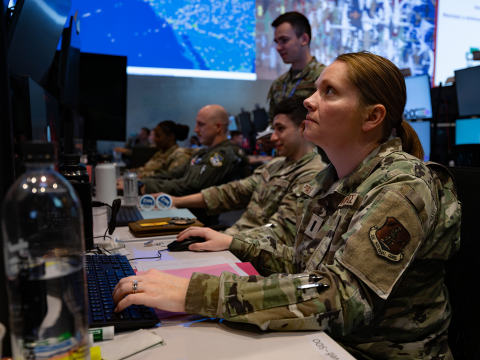Intelligence Oversight Difficulty Increases With Effectiveness
Intelligence community oversight is a necessary function of government that has increased in importance in recent years. However, the characteristics that define intelligence have made oversight more difficult.
Both that need and its difficulty were the focus of a panel on the second day of the AFCEA/INSA Intelligence and National Security Summit 2014, being held September 18-19 in Washington, D.C. Government experts and advocates for civilian privacy discussed the still-elusive balance between transparency and effectiveness.
Eleanor Hill, partner, King and Spalding and a former Defense Department inspector general, pointed out that the House Permanent Select Committee on Intelligence has a statutory provision of oversight. Not all committees have that capability, she noted. Before the September 11, 2001 attacks,, the committee tended to focus on budgets and funding. Since then, it has focused largely on oversight, in-depth work and investigations.
Hill cited three hindrances to effective oversight. First, secrecy complicates oversight. It is very difficult to conduct oversight in a secret environment, she pointed out.
Second, oversight takes time and work. It is hard to do that in Congress. Third, partisanship makes it difficult to conduct an investigation. Hill lauded the bipartisan relationship between the chairman and the ranking member of the House Permanent Select Committee on Intelligence.



Comments